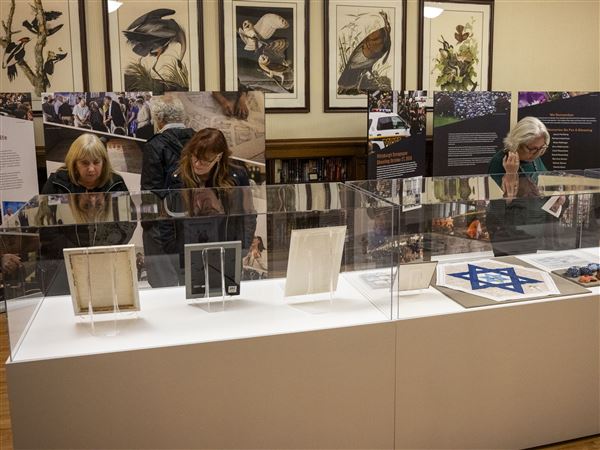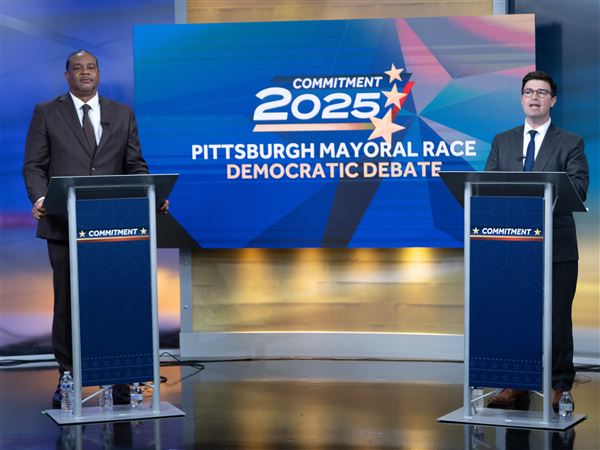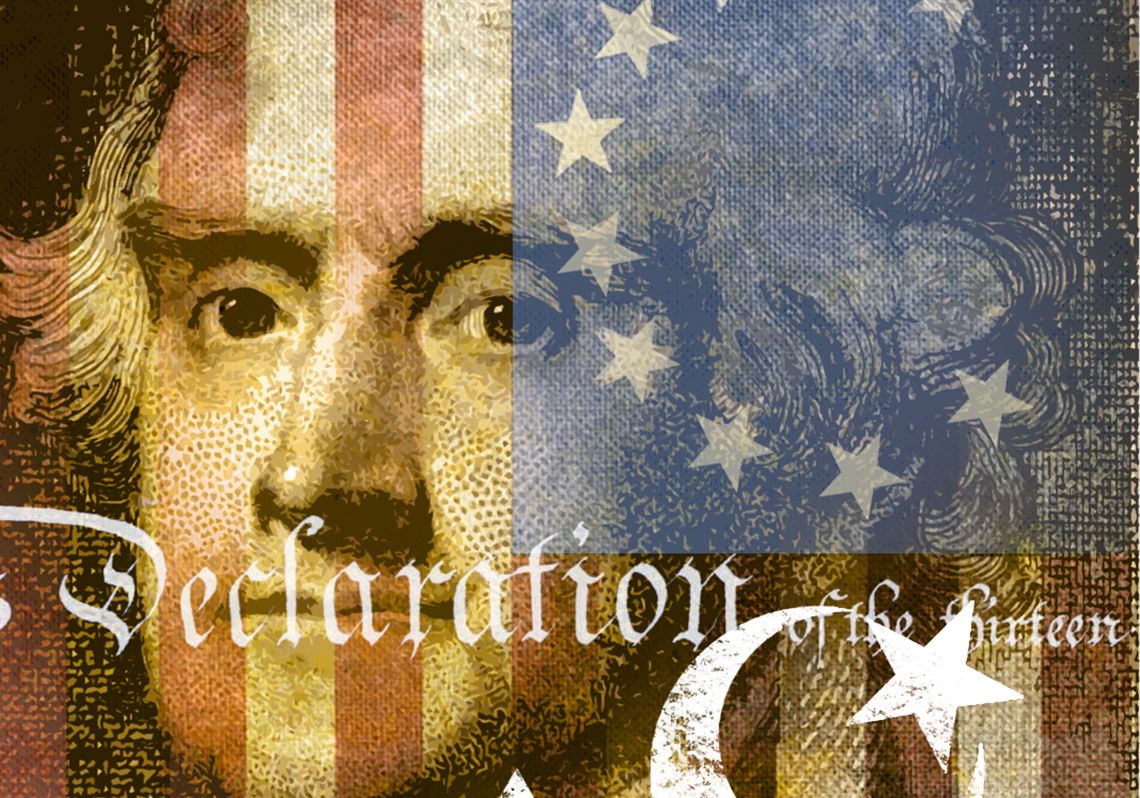As American Muslims find themselves at the center of a heated debate over religious freedom, it’s important to remember that our nation’s founders contemplated these very issues since before the creation of the United States.
“We hold these truths to be self-evident, that all men are created equal, that they are endowed by their Creator with certain unalienable Rights, that among these are Life, Liberty and the Pursuit of Happiness.” So begins the preamble of the Declaration of Independence, adopted July 4, 1776, which announced that the American colonies regarded themselves as a new nation.
The new nation would struggle to make that proposition a reality for all, including African slaves, native Americans, women and other religious and ethnic minorities. In times of real or perceived danger, this proposition has been tested: In the Civil War, of course, but also in 1882 with a sweeping prohibition on the immigration of Chinese workers. In 1919 and the 1950s, the “red scare” caused many innocent Americans to be unfairly accused of being communist sympathizers. American Jews, Catholics and Mormons faced decades of prejudice and often violence. After Pearl Harbor, over 120,000 Japanese-American citizens were forced from their homes and placed in camps. Not to mention Jim Crow and quite a few other examples.
Today, it’s the 5 million to 7 million Americans who happen to be Muslim who have been stereotyped and demonized. GOP presidential candidate Donald Trump has called for the registration of all Muslim-Americans, the warrantless surveillance of all Muslim places of worship and a ban on virtually all Muslims entering the country. “They’re not coming to this country if I’m president,” he said in the most recent Republican presidential debate.
“We have a problem in this country: It’s called Muslims. We know our current president is one. You know he’s not even an American … when can we get rid of ’em?” one of Mr. Trump’s supporters bellowed at a campaign rally in New Hampshire. Mr. Trump responded, “We need this question,” and promised that “we’re going to be looking at that and plenty of other things.”
Such vitriolic sentiment stands in stark contrast to the unifying message of the most recent GOP occupant of the White House, President George W. Bush, in whose administration I was honored to serve. During the 2000 campaign, for example, Mr. Bush praised the faith of Americans who regularly attended a “church, synagogue or mosque,” met with Muslim-American supporters and visited a prominent Islamic center in Michigan — the first major presidential candidate from either party to do so. The GOP convention in Philadelphia was the first in either national party’s history to feature a Muslim prayer.
Mr. Bush’s inclusive efforts earned him the endorsement of eight major Muslim-American organizations. By Election Day, more than 70 percent of the Muslim vote — including 46,200 ballots just in Florida — went in his favor. And after his 2001 swearing-in, Mr. Bush appointed a record number of Muslim-Americans to senior positions throughout his administration.
Mr. Bush also remained steadfast in his inclusiveness after the 9/11 terror attacks. Days after the tragedy, he visited an American mosque, the first and only sitting president to do so. He also reminded the world, “Ours is a war not against a religion, not against the Muslim faith … Ours is a war against individuals who absolutely hate what America stands for.”
When anti-Muslim rhetoric rose, Mr. Bush fired back, “Some of the comments that have been uttered about Islam do not reflect the sentiments of my government or the sentiments of most Americans. Islam, as practiced by the vast majority of people, is a peaceful religion, a religion that respects others. Ours is a country based upon tolerance and we welcome people of all faiths in America.”
Such heroic leadership seems a lifetime away. While other presidential hopefuls, elected officials from both sides of the political aisle, editorial boards and even celebrities have widely condemned Mr. Trump’s statements, it’s easy for the nation’s Muslims to feel singled out, particularly when poll after poll demonstrates increasing popular support for such anti-Muslim sentiment.
And, by the way, Muslim-Americans are growing in political influence. Their political organization is improving, they are increasingly generous financial campaign contributors, and they remain a key voting bloc in swing states such as Virginia, Ohio and Florida.
Follow the founders
Even as Muslim-Americans find themselves at the center of today’s heated political debate, it’s important to remind ourselves that Muslims have been a proud part of the American story from the founding of our republic, and that the founders sought freedom for all — including Muslims — when they conceived our great nation over two centuries ago.
Historians estimate that a quarter to a third of the African slaves brought to the United States were Muslims. American Muslims, both slaves and freemen, served in the American War of Independence and the War of 1812, and were part of the impassioned debate about religious liberty from the nation’s beginning.
Referred to as “Mahometans” and “Turks,” many of the founders referenced Muslims — along with Jews, Catholics and others — as they hotly debated freedom of worship. Thomas Jefferson, in authoring the Virginia Statute for Religious Freedom in 1777, established the foundation for the rights guaranteed in the U.S. Constitution. The statute disestablished the Church of England in Virginia, freeing Virginians from paying taxes to the church and guaranteeing freedom of religion to people of all faiths.
During the debate over the legislation, some Virginia legislators unsuccessfully sought to include a reference to Jesus Christ. Writing later in 1821, Jefferson reflected that “the insertion was rejected by a great majority, in proof that they meant to comprehend, within the mantle of [the statute’s] protection, the Jew and the Gentile, the Christian and Mahometan, the Hindoo and Infidel of every denomination.”
Jefferson was heavily influenced by philosopher John Locke who, in promoting religious freedom in England in 1689, expressed his belief that all citizens who believed in God — Jews, Catholics and Muslims — should be protected. “The legitimate powers of government extend to such acts only as are injurious to others,” Jefferson wrote in Notes on the State of Virginia in 1781. “But it does me no injury for my neighbour to say there are twenty gods, or no god. It neither picks my pocket nor breaks my leg.”
James Madison, who would later become the fourth president, railed against religious taxes and argued that the separation of church and state would actually promote Christianity, because an open society would welcome those “remaining under the dominion of false Religions.” Establishing an official church, he wrote, “discourages those who are strangers to the light of revelation.”
The Virginia Statute for Religious Freedom was a notable precursor of the First Amendment to the U.S. Constitution, which reads “Congress shall make no law respecting an establishment of religion, or prohibiting the free exercise thereof.”
But the real debate surrounded the language banning religious tests as a qualification for public office, put forth in Article 6, Clause 3, of the U.S. Constitution. This clause, revolutionary at its time, provided that “no religious Test shall ever be required as a Qualification to any Office or public Trust under the United States.” By including this clause, the founders proclaimed that men of all faiths, or none at all, would be equally eligible to play a role in public life in the new democratic nation.
The ban on religious tests was a major source of contention during the debates to ratify the new constitution. Madison wrote to Jefferson in 1788 that “one of the objections in New England was that the Constitution, by prohibiting religious tests, opened a door for Jews, Turks & infidels.” Indeed, a delegate to Massachusetts’ ratifying convention warned that public office would be open for “a papist or an infidel.”
During North Carolina’s 1788 ratification debate, anti-Federalist Henry Abbot argued that having no religious test meant it would be possible that “pagans, deists and Mahometans might obtain offices among us, and that the senators and representatives might all be pagans.” A South Carolina newspaper warned that Quakers might take over the fledgling government.
Defenders of banning a religious test fired back. Baptist preacher John Leland, who had opposed religious tests successfully in Virginia, argued, “If a man merits the confidence of his neighbors in Virginia, let him worship one God, 20 Gods or no God — be he Jew, Turk, Pagan or Infidel, he is eligible to any office in the state.”
And Federalist James Iredell, who subsequently was appointed to the Supreme Court, stood firm in his defense of the clause: “[It] is objected that the people of America may, perhaps, choose representatives who have no religion at all, and that pagans and Mahometans may be admitted into offices. But how is it possible to exclude any set of men, without taking away that principle of religious freedom which we ourselves so warmly contend for?”
The Muslims among us
That same question looms over our debate today. The United States now faces a determined enemy who makes no distinctions about our race, ethnicity or religion — attacking us only because we are Americans. In response, some strident voices tragically seek to divide our nation on religious lines by casting suspicion on an entire faith group. Now, more than ever, it’s important to remind ourselves that our great nation was founded on religious freedom for all, regardless of race, ethnicity or religion.
Muslim-Americans are our neighbors and friends. They are doctors, lawyers, business owners, teachers and first responders. Nearly 6,000 serve in our armed services. Many have died for our country, giving, as President Abraham Lincoln put it, “the last full measure of devotion.”
In this time of real danger, let’s not allow our zeal to defend our ideals destroy them.
Suhail A. Khan, a former outreach and policy adviser in the George W. Bush administration, serves on the board of of the American Conservative Union. He wrote this for Foreign Policy.
First Published: December 27, 2015, 5:00 a.m.
















